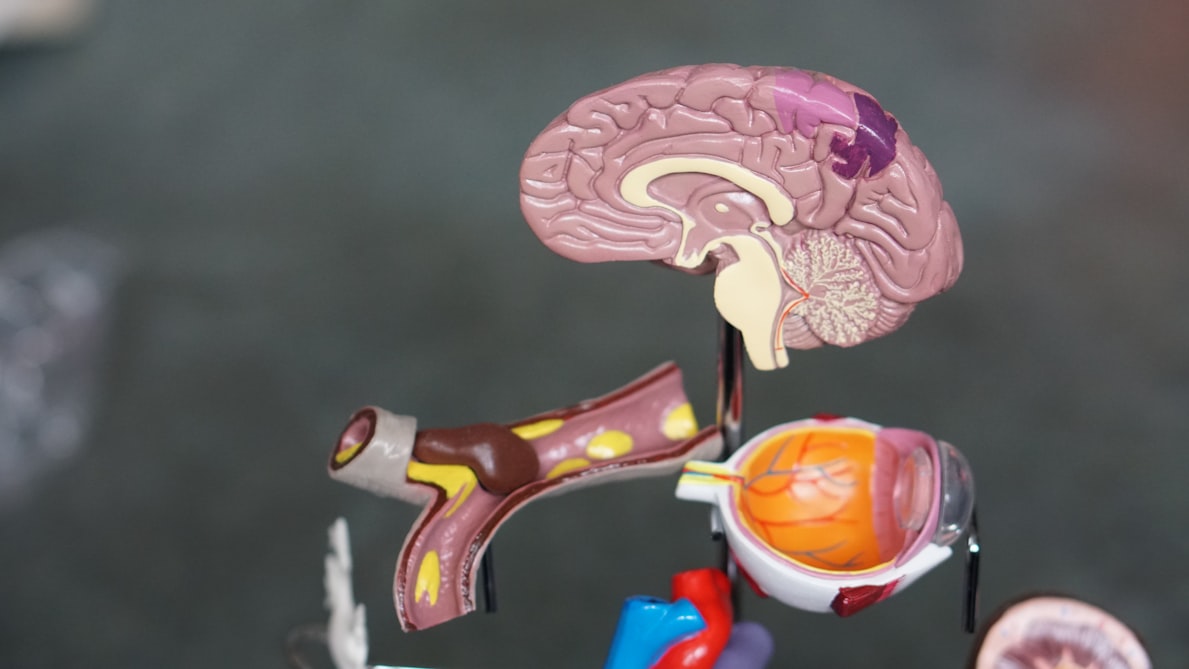Can CBD Help Multiple Sclerosis Patients?

There are lots of claims surrounding the benefits of CBD, but can it offer relief for those suffering from Multiple Sclerosis?
If you search for cannabidiol (CBD) benefits, you’ll find results ranging from short-term relief of minor ailments to some downright miraculous benefits. For anyone who regularly suffers from aches and pains, anxiety, or even acne, CBD can offer temporary relief. But what if you’re suffering from something more severe? For example, could CBD help people who’ve been diagnosed with neurodegenerative diseases?
Neurodegenerative diseases are a series of conditions that mainly affect neurons in the central nervous system. Since neurons can’t heal or replace themselves, the damage from these conditions is irreversible. And, as of right now, there is no cure.
Multiple Sclerosis (MS) is one such disease affecting roughly 2.3 million people worldwide. Early symptoms can include vision problems and numbness, while late-stage symptoms can include tremors, difficulty walking or standing, and difficulty speaking.
To say that MS is debilitating is putting it lightly. Luckily, there’s research being done to determine if CBD could be used as a preventative measure against these diseases. Until that’s confirmed though, there’s no doubt that it can improve the quality of life for those already learning to live with multiple sclerosis.
What is MS?
First, let’s take a close look at your central nervous system. While there’s been a lot of research on the central nervous system, there’s still a lot we don’t know. In the broadest sense, it consists of your brain and your spinal cord. Within them, billions and billions of neurons transmit information throughout your body.
What we know is that the central nervous system helps regulate some pretty important tasks. “It controls our thoughts, movements, emotions, and desires. It also controls our breathing, heart rate, the release of some hormones, body temperature, and much more” (MedicalNewsToday).
When someone has MS, the immune system malfunctions and starts attacking neurons in the central nervous system, and this causes inflammation which damages the myelin surrounding a nerve. Myelin is “the fatty substance that surrounds and insulates the nerve fibers” (NationalMSSociety). Once that protective substance becomes too damaged, the actual nerve fibers are exposed and open to attack.
Essentially, MS alters or completely blocks the ability of some nerves to communicate effectively to the rest of the body. And since those nerves assist almost all of your bodily functions, the effects can be detrimental.
What Causes MS?
What’s even scarier than the effects of MS, is that we’ve yet to pinpoint exactly what causes it. It’s believed that a combination of genetics, immune system abnormalities, and environmental factors can trigger this disease. But we’re still not sure.
The National Multiple Sclerosis Society says that most of the people who get diagnosed with MS are between the ages of 20 and 50 and that women are two to three times more likely than men to get MS. On average in the United States, there’s a .1 percent chance of being diagnosed. If you’re related to someone with MS, that percentage increases, but it’s no guarantee you’ll develop it.
Because there’s still so much we don’t know about MS, it’s so easy for patients to feel hopeless. For family members of patients, it’s heartbreaking to watch loved ones suffer. That’s why many people are turning to CBD to help improve the quality of life for those with the diagnosis.
How Can CBD Help?
One of the most exciting things about CBD is its neuroprotective properties. When something is neuroprotective it doesn’t mean that it can reverse damage to neurons. But it does mean that it can help protect against further damage. For those who’ve managed to get an early diagnosis, this potential is VERY exciting. More research is needed, but the initial findings are very promising.
One study published by CNS Neuroscience & Therapeutics found that a “CBD/THC combination is able to reduce pain and sleep disturbance in patients with MS‐related central neuropathic pain…” This is particularly helpful for MS patients struggling with spasticity--a painful feeling of stiffness and/or a variety of muscle spasms. It can range from mild to severe, and it’s painful.
One HealthLine blogger used a topical CBD oil saying, “I began to use the oil on my feet and lower legs, massaging it on topically at night. I almost feel bad saying this — I haven’t had one bad night, in terms of peripheral neuropathy and spasticity in my lower limbs, since trying [it].” To anyone who regularly suffers from spasticity, that sounds pretty great!
There are even more studies that propose CBD has positive effects by offering temporary relief of inflammation. Much of the fatigue that MS patients struggle with is due to inflammation, so anything that can help decrease that is worth a shot.
We really can’t stress enough that there’s ongoing research being done to determine just how effective CBD is as a therapy for MS. But with its low likelihood of side-effects, it’s quickly becoming the go-to supplement for those suffering from neurodegenerative diseases like MS.
What Kind of CBD Should You Use?
Before getting into the practical how-to information, I think it’s important to note that a lot of the research being done on the medicinal uses of CBD indicates that full-spectrum products are the most beneficial. That means that your CBD products will contain everything that the hemp plant has to offer--including a very tiny amount of THC.
Sativex, the first cannabis-based prescription medication in the UK for spasticity in MS patients, has a roughly 1:1 ratio of CBD to THC. But not only is this drug not legal everywhere, not everyone reacts well to THC. What if you have no interest in ingesting THC at all?
While CBD does mitigate THCs psychoactive properties, THC isn’t widely legalized. Plus, some people have negative experiences with psychoactive products. So the best way to get as much of the medicinal benefits as possible without the risk of getting “high” is to choose Full-Spectrum CBD products.
Full-Spectrum CBD means that the manufacturers have opted to use the entire hemp plant, as opposed to just CBD isolates. And trust me, this is a GOOD thing.
The hemp plant has several different types of cannabinoids along with a host of terpenes (the stuff that gives the plant its aroma). When you utilize all of those items together, you reap the benefit of a phenomenon called the entourage effect. Basically, the different compounds function synergistically, revealing healthful benefits that they wouldn't have had on their own.
Naturally, there is a TINY amount of THC in the hemp plant. But strict regulations limit a full-spectrum CBD product to .3 percent THC. So rest easy; you’ll be reaping as many benefits as possible without the anxiety that can arise from THC.
How to Use CBD for MS
To help temporarily relieve some of the symptoms caused by MS, I would recommend a combination of topicals, oils, edibles ...you know what? Just try them all! Because in all honesty, everyone is different and will prefer to get CBD into their body in a different way.
Vaping CBD oil is perfect if you need something to kick in within a few minutes. However, the effects tend to be the shortest. If you need something that still kicks in relatively quickly but lasts a few hours, then try a tincture. Topicals are phenomenal for soothing muscles that are aching from spasticity--plus you can pretend you’re at a spa retreat while you’re rubbing them in.
Maybe you don’t want to medicate throughout the day. In that case, you’ll want something that will last as long as possible. Consider adding in CBD edibles as part of your morning routine. They take a little longer to kick in, but their effects can last for several hours.
The whole point is that you can choose the products that will fit seamlessly into your routine. So when someone asks how to use CBD to give MS patients relief, the answer is...however they want to take it!
Never Lose Hope
Is CBD the end-all cure for neurodegenerative diseases?
We don’t know yet. And honestly, it wouldn’t be fair for us to make those types of claims anyway. Patients with these diseases will do just about anything to get their hands on something that claims to cure them. In the past, these people have been taken advantage of for that very reason.
That’s why we want to be as transparent as possible and remind people to consult with their doctors before going out and buying every CBD product known to man. Don’t get us wrong, we thoroughly believe in CBD. But we also believe in thoroughly backed research and products that have been third-party tested. Plus, CBD can interact with some medications. So it’s always better to be safe than sorry.
What CBD can offer people though is hope. At the very least, it can offer temporary relief from some truly debilitating symptoms. I believe that even if all it does is remind people that there are good days ahead, that’s a success.
If you, or someone you know, has used CBD to get relief from neurodegenerative symptoms then PLEASE comment down below and consider sharing your story. There are so many people out there suffering, and sometimes all it takes is hearing someone else's story. Share this article with someone who is suffering in silence and let them know they’re not alone.

Hannah Walker is a mostly-retired University English instructor who spends her time freelance copywriting. When not doing that, she’s writing articles related to CBD, skincare, and/or media. With an MA in English-Creative Writing she’s probably working on a creative piece at this very moment. See more about Hannah’s work on her website or on Instagram.





